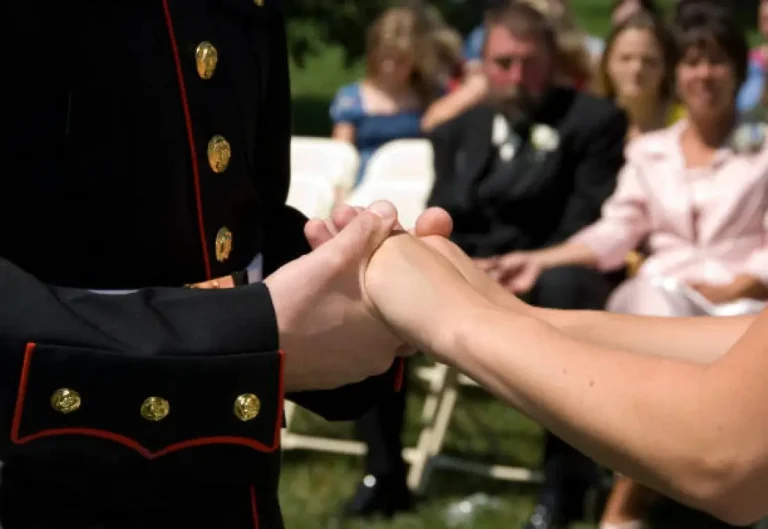She Called Me ‘Too Stupid’ to Know About Her Affairs—Then I Surprised Her
Sometimes the most devastating truths arrive not through careful investigation or growing suspicion, but through a single moment of accidental discovery that changes everything you thought you knew about your life. For me, that moment came on a Tuesday evening when I was supposed to be two states away, but instead found myself standing in my own driveway, listening to my wife of eight years destroy our marriage with her drunken laughter.
My name is Griffin, and this is the story of how one overheard conversation transformed me from a trusting husband into a strategic architect of justice, and ultimately taught me that sometimes the most powerful response to betrayal is not immediate confrontation, but calculated patience.
The Cancelled Trip That Changed Everything
I had been looking forward to the weekend business trip for weeks—a chance to network with potential clients and represent my company at a major industry conference. The plan was straightforward: drive two states over on Tuesday evening, attend meetings Wednesday and Thursday, then return home Friday afternoon with hopefully some new contracts in hand.
But as often happens in business, plans changed at the last minute. A family emergency had forced the conference organizer to postpone the entire event, and I received the cancellation notice just as I was loading my luggage into the car.
Rather than feel disappointed about the cancelled trip, I saw it as an opportunity to surprise Heather, my wife of eight years, by coming home early. We had been together since college, and despite the normal ups and downs of any long-term relationship, I considered our marriage solid and built on mutual trust and respect.
As I pulled into our driveway around eight o’clock that evening, I noticed several familiar cars parked along the street—vehicles belonging to Heather’s close friends who frequently gathered for their monthly wine nights. I could hear the sound of animated conversation and laughter drifting from our back deck, and my initial instinct was to walk around the house and join the party.
That decision to approach the back deck would prove to be the moment that divided my life into before and after.
The Conversation That Shattered My World
“Griffin is just so… I can’t even describe it,” I heard Heather’s voice, slurred with alcohol and dripping with a contempt I had never heard before.
Her friends responded with the kind of encouraging giggles that signaled this was a familiar topic of conversation among them.
“Oh my God, I still can’t believe you’ve managed to keep this going for so long,” said Michelle, one of Heather’s closest friends since high school.
What came next hit me like a physical blow to the chest.
“He’s too stupid to realize I’ve been cheating on him for years,” Heather announced loudly, her words followed by explosive laughter from the entire group.
My brain simply stopped processing information normally. I stood there in the darkness beside my own house, feeling as though I was suddenly observing my life from outside my body.
“Sutton has been the best decision I ever made,” Heather continued, her voice filled with the kind of satisfaction I had once thought was reserved for discussions about our marriage. “Just last week, while Griffin was working late again, Sutton came over and we had sex right on the couch where Griffin takes his precious afternoon naps.”
The Details That Destroyed Everything
The group erupted in more laughter, as if my humiliation was the evening’s entertainment. But Heather wasn’t finished revealing the extent of her betrayal.
As I stood there trembling with shock and rage, I listened to them casually discuss intimate details of my wife’s affair as if it were a television show they all enjoyed watching. I learned that my business trips—which I had always viewed as necessary but unfortunate separations from my wife—were actually Heather’s favorite opportunities to have her lover over to our home.
They had been sleeping together for over three years, conducting their affair in the bed I paid for, in the house where I felt most safe and secure. Most devastating of all, she had been with Sutton during the weekend of my father’s funeral, when she had claimed to be too sick with food poisoning to attend the service with me.
While I had been grieving the loss of my father and supporting my mother through the most difficult weekend of her life, my wife had been in bed with another man.
The sacred afternoon nap couch—a running joke in our marriage about my need for weekend rest after long work weeks—had been desecrated by their affair. The morning after that particular encounter, I had made Heather her favorite breakfast, brought her coffee in bed, and told her I loved her, completely oblivious to what had transpired in our living room.
The Strategic Retreat
I didn’t confront them that night. Every instinct screamed at me to storm onto the deck and expose their conversation, to demand answers and explanations, to fight for some dignity in the moment. But something deeper and more calculating took control of my actions.
I walked quietly back to my car, drove to a nearby parking lot, and sat in the darkness until I could breathe normally again. When I felt stable enough to make a phone call, I contacted my friend Daryl, who had been my closest confidant since college.
“Dude,” I said, my voice barely steady, “my entire life just imploded.”
Daryl didn’t ask for details over the phone. “Don’t go home tonight,” he said immediately. “Come to my place. We’ll figure this out together.”
Planning My Response
At Daryl’s apartment, my mind began replaying the last several years of my marriage with devastating new clarity. All the moments that had seemed slightly off but that I had dismissed or rationalized suddenly made perfect sense: the girls’ trips with no photographs shared, her phone always placed face-down on surfaces, the unexplained hotel charges for locations less than thirty miles from our house.
I felt like the biggest fool on the planet, but Daryl helped me understand that my trust hadn’t been naive—it had been normal. Healthy relationships are built on the assumption that both partners are honest and faithful.
Around three in the morning, I received a text message from Heather: “Girls crashed here tonight. Hope you’re having fun with the boys! Love you!”
The audacity of that message—sent while she was likely planning her next encounter with Sutton—crystallized my resolve.
“You need to be strategic about this,” Daryl advised, taking my phone before I could respond impulsively. “Don’t tip her off to what you know. Not yet.”
The Investigation Phase
The next morning, I returned home and pretended that everything was completely normal. Heather was slightly hungover but affectionate, making me breakfast and asking about my cancelled trip. I played the role of the disappointed but understanding husband while internally documenting every lie she told.
Over the following week, I went into full reconnaissance mode. When she was in the shower, I carefully examined her phone, finding thousands of text messages with Sutton, hotel receipts, and explicit photographs. I methodically screenshotted everything and emailed the evidence to a secure account I created specifically for this purpose.
I examined our joint financial accounts with new eyes, discovering hundreds of unexplained charges at restaurants I had never visited, for lingerie I had never seen her wear, and for hotel rooms booked during times when she claimed to be with friends or family. Most shocking of all, she had used our joint account to book a romantic weekend getaway with Sutton during the exact weekend of my father’s funeral.
Building My Legal Strategy
I scheduled a consultation with the most aggressive divorce attorney in our city, a woman whose reputation for protecting her clients’ interests was legendary. During our meeting, she provided clear guidance that would prove invaluable in the weeks to come.
“Document everything,” she instructed. “Secure your finances before she realizes what’s happening. Prepare for the storm, because when this comes out, she’s going to fight dirty. The more prepared we are now, the better position you’ll be in when the divorce proceedings begin.”
That night, I sat in our living room watching Heather laugh at messages on her phone—probably communicating with Sutton—and felt the last remnants of pain transform into something much colder and more focused. I didn’t just want to escape this marriage anymore. I wanted justice.
Heather had built her entire public identity around being respected and admired, positioning herself as the moral compass of her social circle. I had proof that it was all an elaborate lie, and I intended to use that proof strategically.
Implementing the Plan
I began making careful moves to protect myself financially and legally. I transferred half of our joint savings to a new account, secured password protection on important documents, and created a detailed inventory of our shared assets. All of this occurred while I continued to play the role of the oblivious, trusting husband.
Each morning, I brought her coffee in bed. Each evening, I asked about her day and listened to her lies with a straight face. I told her I loved her and meant it in the past tense, mourning the woman I had thought she was while preparing to expose the woman she actually was.
Three weeks after the overheard conversation, my comprehensive plan was ready for implementation. Heather had begun being extra attentive and affectionate—what I now recognized as classic cheater’s guilt—buying me small gifts and suggesting romantic date nights.
I had quietly frozen our joint credit cards, telling her that the bank was issuing new ones due to “suspicious activity” detected on our accounts. The look of panic on her face when her card was declined at a department store was the first small taste of the justice to come.
The Nuclear Option
With Daryl’s help, I compiled what we called the “nuclear file”—a comprehensive package containing screenshots of text messages, hotel receipts, a detailed timeline of the affair, and recordings of phone conversations between Heather and Sutton. We lived in a one-party consent state, which meant I could legally record conversations I was part of, including speakerphone calls that occurred in my presence.
I created multiple copies of this evidence package: one for my attorney, one for myself, one for Sutton’s wife Laura (whom I had confirmed was completely unaware of the affair), and one for Heather’s parents, who had always treated me like the son they never had.
I chose the timing for what I privately called “D-Day” with strategic precision: the day of Heather’s biggest client appreciation event of the year, an occasion she had been planning for months and that was crucial to her career advancement.
The Day of Reckoning
That morning, I acted completely normal, making coffee for both of us and wishing her luck with her important event. At exactly ten o’clock, I arranged for the evidence package to be delivered by courier to Laura, Sutton’s wife, at her workplace.
By noon, my phone was flooded with increasingly frantic text messages from Heather: “Why is Sutton’s wife calling me?” “Answer your phone NOW!” “What did you tell her?”
I didn’t respond to any of them. Instead, I took a call from Laura, who was understandably devastated but grateful to finally understand why her marriage had been deteriorating. Apparently, Sutton had been gaslighting her for years, making her believe that her concerns about his behavior were symptoms of her own insecurity and paranoia.
Within hours of receiving the evidence, Sutton was frantically attempting to save his own marriage by throwing Heather completely under the bus, claiming that she had been pursuing him obsessively and that he had been trying to end the affair for months.
By two o’clock in the afternoon, Heather’s carefully planned client event was falling apart as she dealt with the personal crisis exploding in her life. At three o’clock, I sent a factual, non-inflammatory email to her parents, including the timeline and key pieces of evidence that demonstrated the extent and duration of the affair.
The Confrontation
By six o’clock that evening, I was sitting calmly in our living room when Heather came home. Her makeup was smeared, her hair disheveled, and her professional composure completely shattered.
She started with anger, accusing me of spying on her and violating her privacy. When that approach failed to generate the defensive response she expected, she moved to bargaining, promising that the affair was over and that we could work through this together. Next came tears and desperate attempts at emotional manipulation.
Finally, she tried seduction, suggesting we go upstairs and reconnect physically as a way to begin healing our marriage.
I listened to all of it with detached calm, then simply handed her the divorce papers my attorney had prepared.
The color drained from her face as she realized this wasn’t a spontaneous emotional reaction to discovering her affair. This was the result of weeks of careful planning and preparation. That’s when she noticed that some of my belongings—the items that mattered most to me—were no longer in the house.
I informed her that I would be staying elsewhere indefinitely and that she had three days to figure out her living situation before I notified our landlord about the morality clause in our lease agreement.
The Aftermath
The next few days brought a predictable cycle of threats, desperate pleas for reconciliation, and attempts to play the victim. Meanwhile, the social consequences of her actions began to unfold with devastating efficiency.
Her closest friends—the same women who had laughed at my expense on that terrible Tuesday night—began distancing themselves from her. Her parents, who had always been extremely conservative about marriage and fidelity, had what they described as a “very disappointing conversation” with their daughter.
Most pathetically, Sutton completely abandoned her the moment his own marriage was threatened, telling his wife that Heather had been obsessed with him and that he had been trying to extricate himself from her unwanted advances.
The financial reality of divorce hit Heather particularly hard. With half of our savings suddenly inaccessible to her and her credit cards frozen, she couldn’t afford to maintain the lifestyle she had grown accustomed to on her own salary.
The Broken Woman at My Door
Several weeks later, she appeared at my new apartment, sobbing on the doorstep and looking completely broken. For a brief moment, I almost felt sympathy for her. Almost.
I allowed her inside, where she launched into an elaborate speech about how she had made a terrible mistake and wanted to do whatever it took to repair our marriage.
I looked at her calmly and said, “Do you remember when you told your friends that I was too stupid to realize you were cheating? Well, surprise.”
The expression on her face when she realized I had overheard that entire conversation was a mixture of pure shock, horror, and shame. She had built her affair on the assumption that I was too trusting and naive to ever discover her betrayal.
I cut off her attempt to explain or apologize and instead showed her detailed spreadsheets and financial projections that illustrated exactly how her life would look after our divorce was finalized.
The Legal Resolution
Six months later, the divorce proceedings concluded with surprising efficiency. My attorney proved to be every bit as effective as her reputation had suggested. When Heather attempted to argue for an equal division of all marital assets, the mediator—a no-nonsense older woman with decades of experience—simply asked whether three years of extensively documented infidelity could reasonably be characterized as “one mistake.”
We reached a settlement agreement two weeks later. I retained my retirement accounts and the majority of our shared assets. Heather received enough money to start over independently, but nothing close to the comfortable lifestyle she had enjoyed during our marriage.
The broader consequences of her choices continued to unfold over the following months. She was forced to move in with her parents in their retirement community. While she didn’t lose her job directly because of the affair, her performance suffered significantly as she struggled to manage the personal chaos in her life, eventually leading to her resignation.
Her social circle, which had once revolved around couples’ activities and shared friendships, completely fractured. Most people chose to distance themselves from both of us rather than take sides in the divorce.
Laura, Sutton’s wife, ultimately divorced him and moved to another state to start fresh. I heard through mutual acquaintances that she was eventually dating a kindergarten teacher and seemed genuinely happy for the first time in years.
The Healing Process
The first month after moving into my own apartment was characterized by isolation and depression. I had lost not just my marriage, but my entire social structure and daily routine. Daryl eventually staged an intervention, insisting that I begin therapy to process the trauma of betrayal and the major life changes I was navigating.
Therapy proved to be invaluable in helping me understand that Heather’s choices were not a reflection of my worth as a husband or a person. I began taking small but meaningful steps toward rebuilding my life: I bought proper furniture for my apartment, joined a recreational soccer league, and started cooking meals for myself again instead of relying on takeout.
The Final Encounter
Last week, I had an unexpected encounter with Heather at a home improvement store. She looked different—her hair was shorter and less styled, her clothes were more modest and practical than the designer outfits she had once favored.
She approached me and offered what seemed to be a genuine apology, without excuses or attempts to shift blame. She told me that she was in therapy and had accepted a job opportunity in Chicago, viewing it as a chance to start over in a place where her reputation wasn’t tainted by the scandal of our divorce.
The most surprising aspect of this encounter was my own reaction: I felt nothing. Not anger, not pain, not even satisfaction at seeing the consequences of her choices. It was like watching the conclusion of a television show that I had stopped caring about.
As she was leaving, she turned back and said something that has stayed with me: “I know it doesn’t matter now, but I really did love you. I just didn’t know how to love anyone properly, including myself.”
The New Beginning
My new apartment is finally starting to feel like home rather than just a place where I sleep. I’ve begun dating someone new, taking the relationship slowly and carefully, having learned the importance of watching actions rather than just listening to words.
Yesterday, I deleted all the evidence files from my computer—the screenshots, recordings, and documents that had been so crucial during the divorce proceedings. The act felt symbolic, like finally closing a chapter that had defined my life for too long.
Lessons Learned
The woman who had laughed with her friends about me being too stupid to recognize her betrayal learned the hardest lesson of all: actions have consequences, and trust, once broken, cannot be easily repaired.
As for me, I learned that I am stronger and more resilient than I had ever imagined. I discovered that the best response to betrayal is not necessarily immediate confrontation or revenge, but rather strategic patience and the courage to rebuild your life on your own terms.
Most importantly, I learned that the best revenge isn’t destroying someone else’s life—it’s rebuilding your own, better and stronger than it was before.
The man who was once “too stupid” to see his wife’s affair had become smart enough to engineer his own liberation and create the foundation for a much happier future. And that transformation, more than any legal victory or financial settlement, represents the real triumph of this story.

Emily Johnson is a critically acclaimed essayist and novelist known for her thought-provoking works centered on feminism, women’s rights, and modern relationships. Born and raised in Portland, Oregon, Emily grew up with a deep love of books, often spending her afternoons at her local library. She went on to study literature and gender studies at UCLA, where she became deeply involved in activism and began publishing essays in campus journals. Her debut essay collection, Voices Unbound, struck a chord with readers nationwide for its fearless exploration of gender dynamics, identity, and the challenges faced by women in contemporary society. Emily later transitioned into fiction, writing novels that balance compelling storytelling with social commentary. Her protagonists are often strong, multidimensional women navigating love, ambition, and the struggles of everyday life, making her a favorite among readers who crave authentic, relatable narratives. Critics praise her ability to merge personal intimacy with universal themes. Off the page, Emily is an advocate for women in publishing, leading workshops that encourage young female writers to embrace their voices. She lives in Seattle with her partner and two rescue cats, where she continues to write, teach, and inspire a new generation of storytellers.









